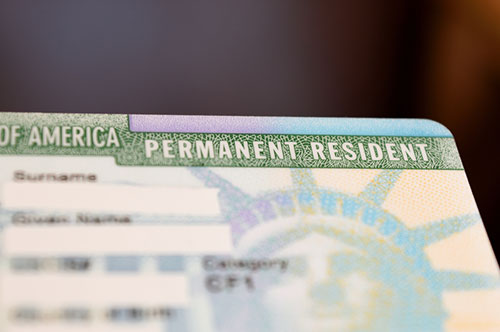What is a Violation of the Immigration Control Act? An Explanation of the Types of Penalties and the Process after Arrest.

What is the procedure when a foreign national is arrested on suspicion of violating the Immigration Control and Refugee Recognition Act (“Immigration Control Act”)? Due to the risk of being deported back to one's home country whereby the suspect may be separated from family and friends, it is advisable to seek legal assistance from an attorney at an early stage.
In this column, an attorney from Verybest Law Offices will explain the basics of the Immigration Control Act, its violations, penalties, and deportation procedures.
Table of Contents
- 1: What is a Violation of the Immigration Control Act?
- 2: Penalties for Violations of the Immigration Control Act
- 3: Japanese Nationals May Also Be Subject to Penalties for Violations of the Immigration Control Act
- 4: The Process Following Arrest for Violation of the Immigration Control Act
- 5: In Case of Deportation
- 6: Conclusion
1: What is a Violation of the Immigration Control Act?
First, we will explain the basics of the Immigration Control Act and the acts that can constitute a violation.
-
(1) What is the Immigration Control Act?
The Immigration Control Act, formally known as the “Immigration Control and Refugee Recognition Act,” is a law aimed at ensuring fair management of the entry and exit of all persons entering and leaving Japan, as well as establishing procedures for refugee status recognition.
Japan has adopted a status of residence system, and immigration is controlled by denying entry or by suspending the issuance of visas to those who do not have the status of residence stipulated by the Immigration Control Act.
In the past, the main purpose of the status of residence system was for Japan to benefit from the talents and skills of foreign nationals with special abilities or expertise who engage in such activities in Japan. Therefore, it was not intended to simply fill labor shortages by accepting foreign workers.
However, in recent years, in response to the decline in the working-age population in Japan, status of residence has been expanded to accept foreign workers, including accepting technical intern trainees under the status of residence for specified skills.
-
(2) Acts that Can Constitute Violations of the Immigration Control Act
Examples of acts that can constitute violations of the Immigration Control Act include the below:
- Entering Japan illegally
- Continuing to stay in Japan after the period of stay has expired
- Employing foreign nationals who do not have the status of residence
- Engaging in activities that do not fall under one's status of residence
- The penalties for these potential violations of the Immigration Control Act are explained in detail below.
2: Penalties for Violations of the Immigration Control Act
Examples of acts that constitute violations of the Immigration Control Act and the corresponding penalties for such acts include:
-
(1) Criminal Penalties for Illegal Aliens
Foreign nationals must obtain certain statuses of residence stipulated by the Immigration Control Act to stay in Japan. Those who stay in Japan without such status of residence are considered illegal aliens.
Illegal aliens include "illegal overstayers," who remain in Japan beyond their permitted period of stay, and "illegal residents," who enter Japan illegally and stay in Japan. Such illegal aliens will be penalized with imprisonment with or without work of up to three years or a fine of up to 3,000,000 yen.
Additionally, illegal aliens are subject to administrative dispositions such as deportation, which will be discussed below.
Additionally, illegal residents who meet all of the following conditions are subject to a “departure order” instead of deportation (under Article 24-3 of the Immigration Control Act):
- They have the intention to leave Japan promptly and have voluntarily appeared before the Immigration Services Agency (“ISA”).
- It is anticipated that they will definitely leave Japan promptly.
- They do not fall under any other grounds for deportation except for illegal overstay in Japan.
- They have not been sentenced to imprisonment with or without work for certain crimes such as theft.
- They have not previously left the country by being deported or ordered to leave the country.
-
(2) Criminal Penalties for Activities Other Than That Permitted Under the Status of Residence Granted
Foreign nationals are allowed to engage in activities within the scope of activities stipulated by their status of residence under the Immigration Control Act. If they engage in activities other than that permitted under their status of residence granted, they need to obtain permission for such activities. If they engage in such activities without such permission, they may be punished with imprisonment with or without work of up to one year, or a fine of up to 2,000,000 yen, or both.
Foreign nationals sentenced to imprisonment without work or a more severe penalty for this violation, will also be subject to deportation as an administrative disposition.
-
(3) Criminal Penalties Related to Residence Card
Foreign nationals who have obtained lawful status of residence in Japan (mid to long-term residents) are issued a residence card.
Forgery or alteration of this residence card is punishable by imprisonment with work for a term between one to ten years.
Furthermore, possession of a forged resident card is punishable by imprisonment with work of up to five years or a fine of up to 500,000 yen. If a residence card has been issued, there is an obligation to provide notice of any changes to the details that you have provided to the authorities. Failure to notify such changes can result in a fine of up to 200,000 yen.
-
(4) Criminal Penalties for Violating the Obligation to Confirm Departure
When leaving Japan, it is necessary to undergo confirmation of departure by an immigration inspector.
Failure to obtain confirmation of departure by an immigration inspector will result in imprisonment with or without work of up to one year, or a fine of up to 300,000 yen, or both.
3: Japanese Nationals May Also Be Subject to Penalties for Violations of the Immigration Control Act
When thinking of violations of the Immigration Control Act, there may be a perception that it only pertains to “the punishment of foreign nationals without proper status of residence.” However, Japanese nationals may also be subject to penalties for violating the Immigration Control Act if the Japanese national employs a foreign national who does not have proper status of residence.
-
(1) What is the Crime of Encouraging Illegal Work?
The crime of encouraging illegal work is a crime committed by a person who encourages the illegal work activities of a foreign national.
"Illegal work" refers to foreign nationals working without proper status of residence or engaging in work other than that permitted under their status of residence granted.
And, the crime of encouraging illegal work may be committed not by the foreign national who worked illegally, but by the employer who hired such foreign national to work illegally.If convicted of the crime of encouraging illegal work, the penalties can include imprisonment with work of up to three years or a fine of up to 3,000,000 yen, or both.
-
(2) Cases That Could Constitute the Crime of Encouraging Illegal Work
An employer may be found guilty of the crime of encouraging illegal work where:
①Where the employer has an illegal alien work
Illegal aliens include "illegal overstayers" who remain in Japan beyond their permitted period of stay and “illegal residents” who illegally enter Japan and stay in Japan. Illegal aliens do not have the right to stay in Japan in the first place.
Thus, employing such an illegal alien can lead to the employer being in violation of the Immigration Control Act.②Where the employer has a foreign national without a work permit work
Even if a foreign national has proper status of residence, they cannot work in Japan without a work permit.
For example, tourists staying in Japan with the status of residence of a “Temporary Visitor” or students whose primary purpose is not employment fall into this category. Employing such foreign nationals without a work permit can also lead to the employer being in violation the Immigration Control Act.③Where the foreign national performs work outside of the limited scope of work allowed
Even if a foreign national has a work permit, it does not mean that they are allowed to work in all types of jobs.
When obtaining a work permit, the types of occupations that the foreign national is permitted to assume are limited. If they wish to assume occupations outside of those permitted, they need to obtain permission to engage in such activities. An employer who allows an employee to work outside of the permitted occupations without obtaining permission may be found in violation of the Immigration Control Act.
4: What happens after one is Arrested for Violating the Immigration Control Act
If arrested on suspicion of violating the Immigration Control Act, the criminal procedure will proceed as follows:
-
(1) Arrest
If arrested by the police, the suspect will be placed in custody at a police station’s detention facility and will undergo police questioning.
-
(2) Detention
After arrest, the suspect will subsequently be transferred to the prosecutor’s office for questioning. If the prosecutor determines that it is necessary to continue to keep the suspect in custody, a detention request must be made within 72 hours of the arrest.
If the court approves the detention, the suspect can remain in custody for an additional 10 days. If an extension of the detention is granted, the suspect can remain in custody for an additional 10 days. Counting from the time of arrest, a suspect can remain in custody for the maximum period of 23 days, during which time the foreign national’s allowed period of stay under the Immigration Contract Act may be exceed, so care must be taken.
-
(3) Indictment or Non-Indictment
By the time that the detention period expires, the prosecutor must decide whether to indict or not indict the case. If the prosecutor has decided not to indict, the suspect will be immediately released, but if indicted, the suspect will face a criminal trial to determine guilt.
5: In Case of Deportation
As mentioned above, where an individual is an illegal alien or engages in activities that are not permitted and is sentenced to imprisonment without work or a more severe penalty, the individual will be subject to deportation as an administrative disposition.
-
(1) What is Deportation
Deportation is the process of forcibly removing a foreign national from Japan who meets the deportation criteria. The main grounds for deportation (Article 24 of the Immigration Control Act) are below:
- Illegal entry … entering Japan without a valid passport.
- Illegal landing … having a valid passport but landing in Japan without obtaining permission for landing, etc. from an immigration inspector.
Illegal stay (overstay) … staying in Japan beyond the allowed period of stay. - Activities outside those permitted (illegal work) … engaging in work other than that permitted under their status of residence granted without obtaining permission, and receiving income from such work.
- Aiding illegal entry or landing …creating or providing forged passports and other documents in an organized or professional manner.
- Violating criminal laws, etc.… being sentenced to imprisonment with or without work for crimes such as murder, assault, intimidation, fraud, and extortion.
- Other grounds.
-
(2) Re-Entry to Japan is Not Permitted for a Certain Period After Deportation
After being deported from Japan or receiving a departure order and leaving Japan, as a general rule, you are prohibited from landing in Japan for a certain period (period of denial of landing). The period of denial of landing is below:
Period of Denial of Landing Details 10 years from the date of deportation If a person who has previously been deported from Japan or received a departure order and left the country is deported again. 5 years from the date of deportation If a person is deported. 1 year from the date of departure If a person left Japan due to a departure order. Additionally, those who have been convicted of imprisonment with work for one year or more, including where the sentence is suspended, as well as those who violate narcotics-related laws, will be denied landing even after 10 years. Entry or re-entry is not permitted until a special permission to land or a re-entry permit is obtained.
-
(3) The Process of Deportation
The basic process of deportation is below:
① Violation Investigation
Immigration control officers will investigate foreign nationals who are thought to fall under the grounds for deportation.
② Detention
As a result of the violation investigation, if the suspect is thought to fall under the grounds for deportation, the suspect will be detained based on a detention order issued by the supervising immigration inspector of the regional immigration services bureau. However, if the suspect is found to be subject to a departure order, the suspect will not be detained.
③ Violation Examination by Immigration Inspectors
Within 48 hours of being detained by immigration control officers, custody of the suspect will be handed over to an immigration inspector, and an examination will be conducted. If, as a result of the examination, it is found that the suspect falls under grounds for deportation, the suspect will be notified in writing. If the suspect accepts the findings, a deportation order will be issued.
④ Oral Hearing by Special Inquiry Officer
If the suspect has an objection to the immigration inspector’s findings or if there is no error in the findings but the suspect wishes to be granted special permission to stay in Japan, the suspect may request an oral hearing by a special inquiry officer within three days of notification. If, as a result of the oral hearing by the special inquiry officer, it is determined that there is no error in the immigration inspector’s findings, and the suspect accepts this and wishes to return to their home country, a deportation order will be issued.
⑤ Filing of an Objection
Even after an oral hearing, if the suspect alleges that the determination is incorrect, or if there is no error in the determination but the suspect wishes to obtain special permission to stay, the suspect may file an objection with the Minister of Justice. In filing an objection, a document stating the grounds of objection must be submitted to the supervising immigration inspector within three days from the receipt of the notice of determination.
⑥ Decisions by the Minister of Justice
The Minister of Justice reviews the records of the violation investigation by the immigration control officer, the violation examination of the immigration inspector, and the oral hearing by the special inquiry officer to make a decision. If the objection filed is found unreasonable, a deportation order will be issued by the supervising immigration inspector. On the other hand, if the objection is found to be within reason, the suspect will be immediately released.
⑦ Special Permission to Stay
Even if the objection is found unreasonable, special permission to stay may be granted in cases such as the below. Special permission to stay is at the discretion of the Minister of Justice and there is no guarantee that it will be granted.
- Those who have received permission for permanent residence (Immigration Control Act Article 50, Paragraph 1, Item 1)
- Those who have had a registered domicile in Japan as a Japanese national in the past (same paragraph, Item 2)
- Those who have resided in Japan under the control of another person due to human trafficking (same paragraph, Item 3)
- Other circumstances where the Minister of Justice finds that there are ground to grant special permission to stay (same paragraph, Item 4)
6: Conclusion
Violating the Immigration Control Act may result in not only criminal penalties but may also lead to deportation as well as other consequences. If you have any concerns, please contact the English-speaking international team at Verybest Legal Offices.





